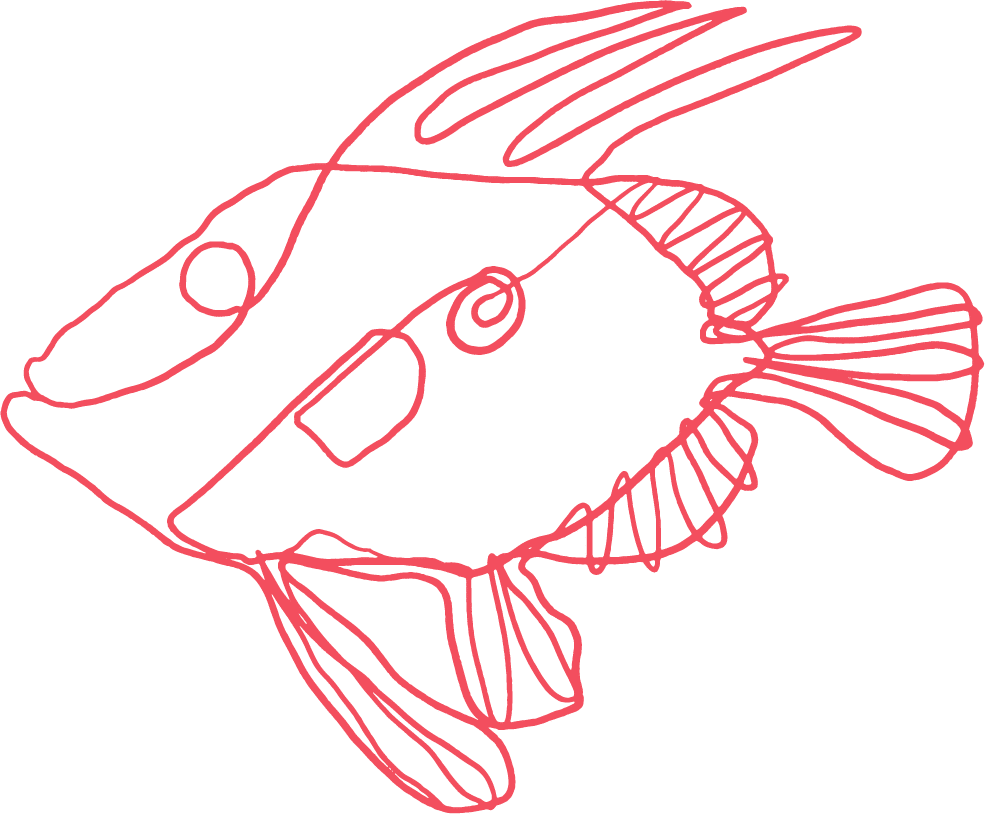![]()

![]()

Greater Spotted Catshark, Large-Spotted Dogfish
Bull Huss are striking, robust sharks with grey to sandy brown colouring, patterned with large dark spots across their bodies and fins. They have a broad, flattened head, large cat-like eyes, and strong skin covered with small, rough denticles. Adults often grow over a metre in length, making them larger and chunkier than their close relative, the Lesser Spotted Dogfish.
Bull Huss are bottom-dwelling sharks found across the northeast Atlantic, from southern Norway to the western Mediterranean. In the UK, they are frequently seen off the southwest coast, inhabiting rocky seabeds, reefs, and kelp forests. They are relatively sedentary and tend to stay local to specific areas.
Sustainability Rating

Status: Bull Huss are vulnerable to overfishing due to slow growth rates and low reproductive capacity.

Best Choice: Fish caught by small-scale, targeted gill nets or hook and line, particularly where local management plans are in place.

Avoid: Fish taken as bycatch in unregulated trawl fisheries.
Culinary Uses

Bull Huss offers firm, meaty flesh that holds together well when cooked. It is traditionally sold under the name rock salmon.

However, it is not widely targeted by Cornish fishermen today due to the difficulty of removing its extremely tough, abrasive skin — a laborious and time-consuming process.

When prepared properly, the flesh is ideal for grilling, baking, or deep-frying, often paired with bold seasonings or marinades.
Best Fishing Practices

Static gill netting and hook and line fishing are the most sustainable approaches, offering targeted harvest with minimal seabed impact.

Fisheries that implement landing size limits and catch monitoring play an important role in maintaining healthy stocks.
Seasonality

Available year-round, with catches more common during the spring and summer months.
Protecting Our Coastal Shark Species
Bull Huss, or the Greater Spotted Catshark, is an iconic part of Britain’s coastal ecosystems.
By supporting low-impact fisheries and avoiding unsustainably caught sharks, we can help ensure that these fascinating creatures remain part of our marine heritage for years to come.
On our menu: Yes ✓
Book now
Join us at Faber Restaurant to explore our menu. Book a table today using the form below or call us on 0208 161 9800 if you have any special requirements.
Faber’s Private Hire Oyster Bar adds a unique and luxurious touch to weddings, private parties, and corporate events.
Read moreFaber is the perfect venue for group dining, drinks and our tasting menu. Catering for large parties and corporate occasions and dining with our tasting menu options.
Read moreFrom the very best shellfish around our coast our shellfish platters are available for advance orders when booking a table 7 days a week from midday.
Read more
